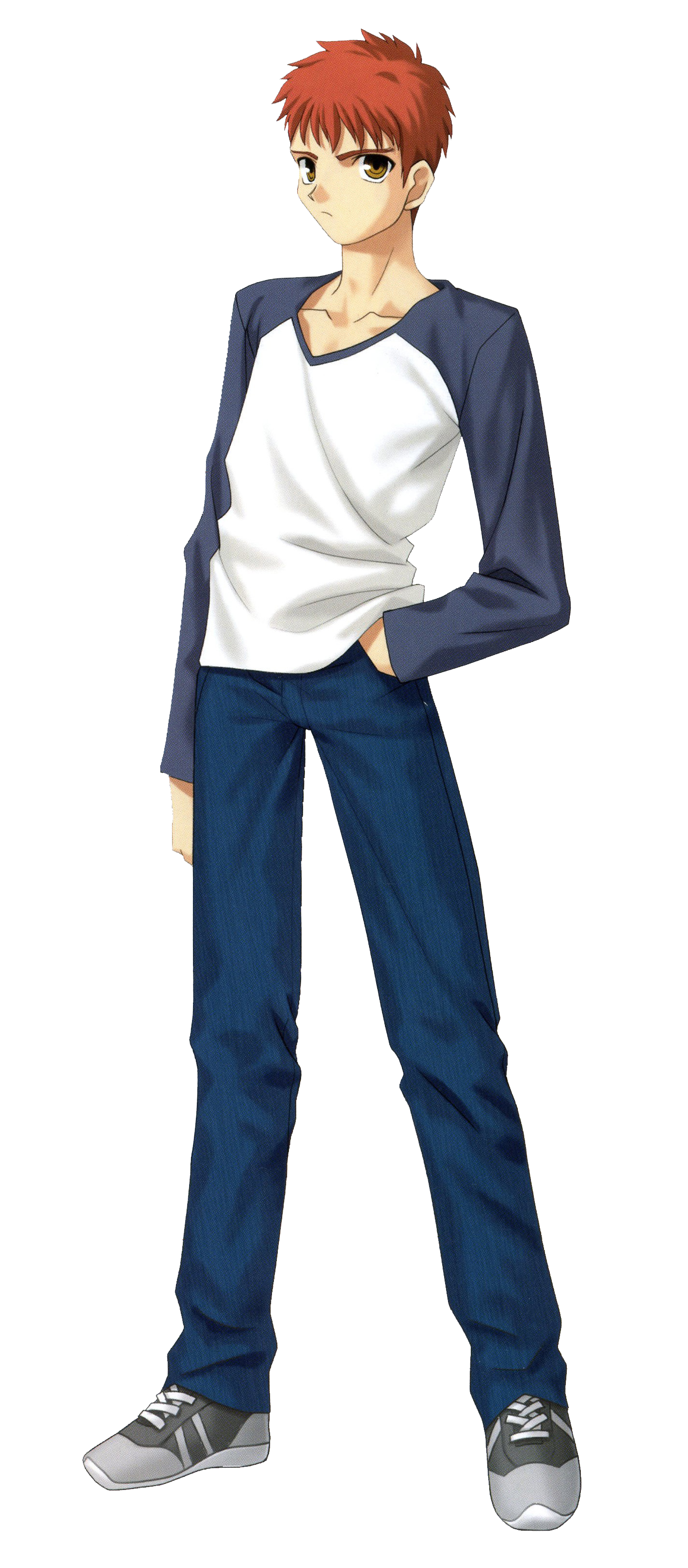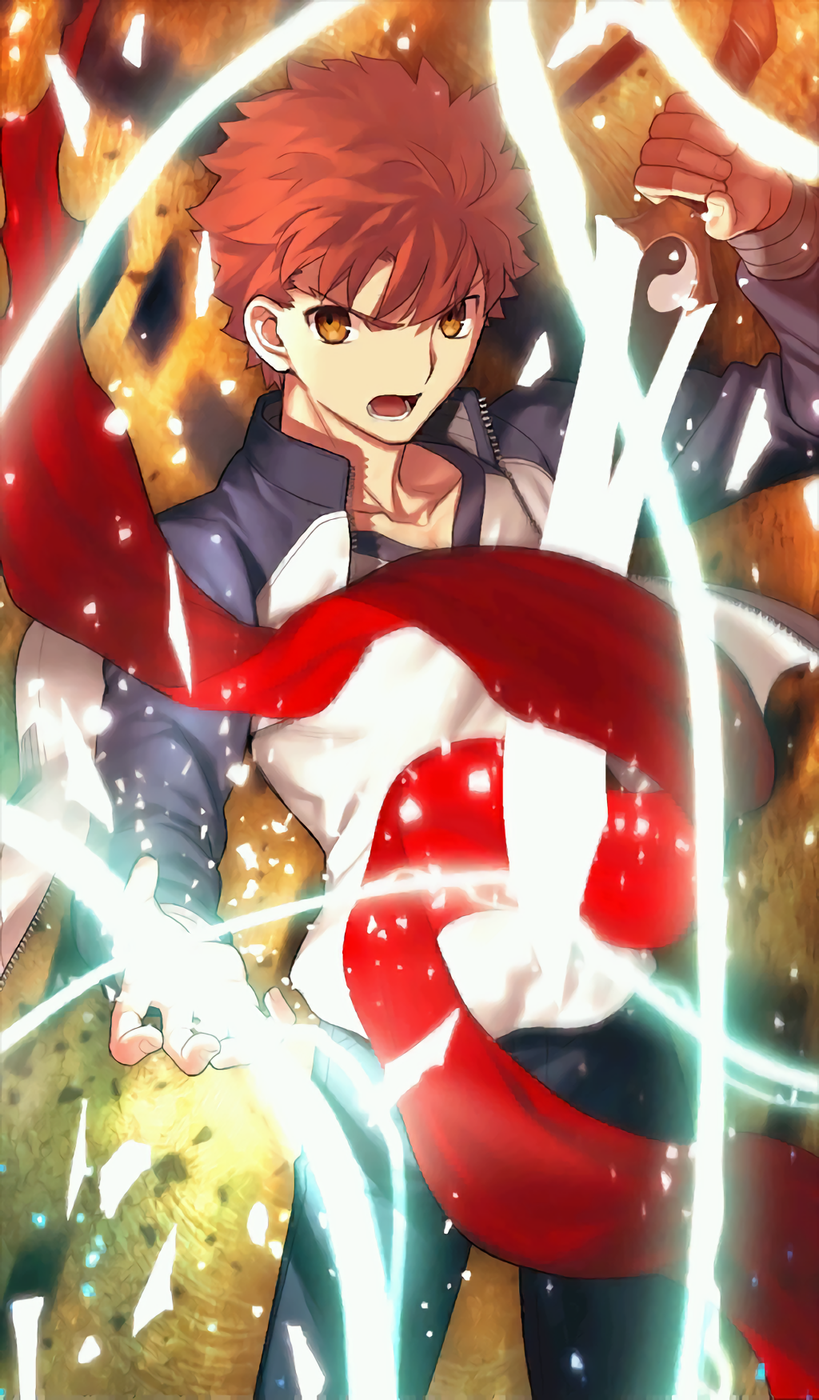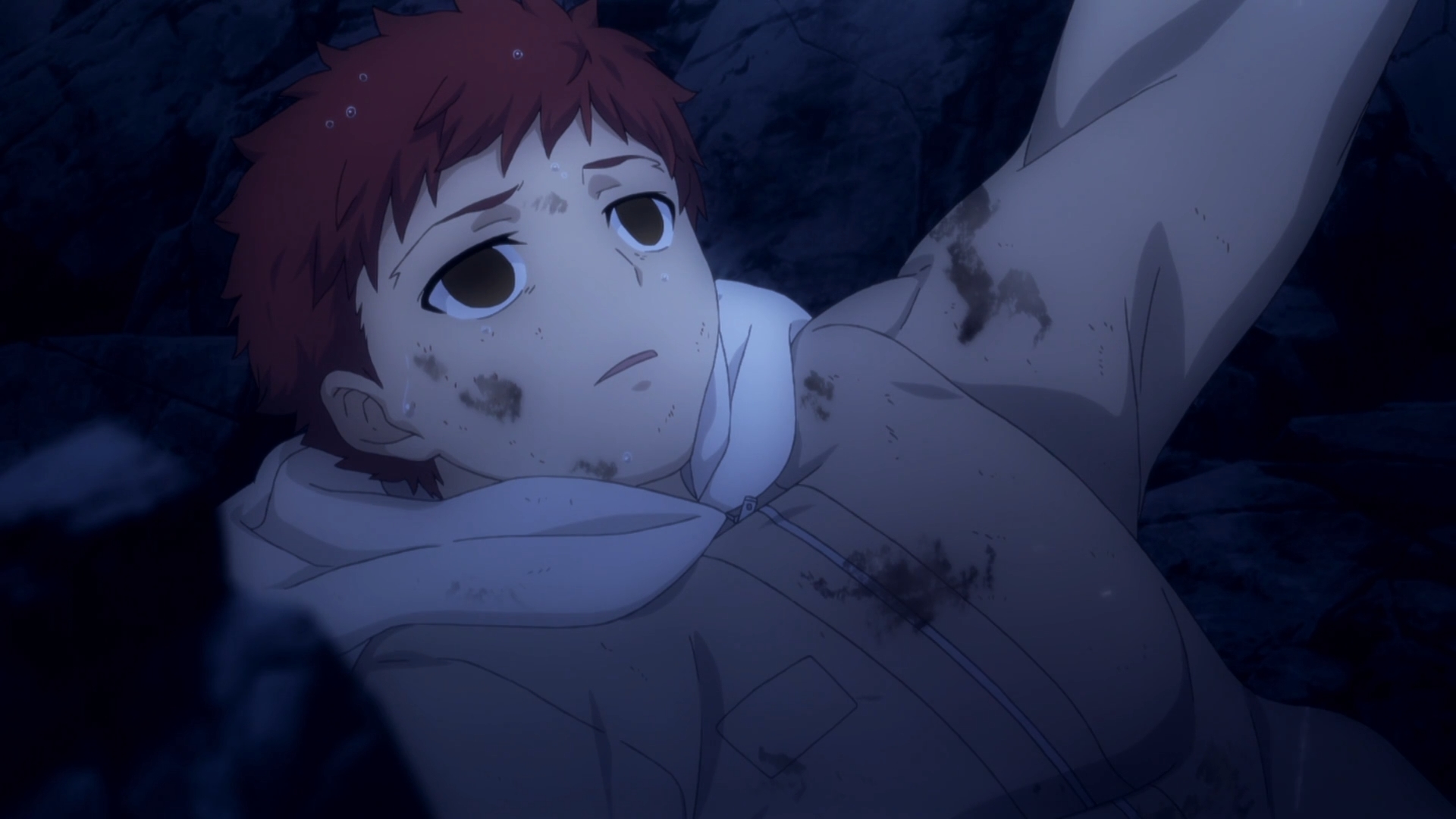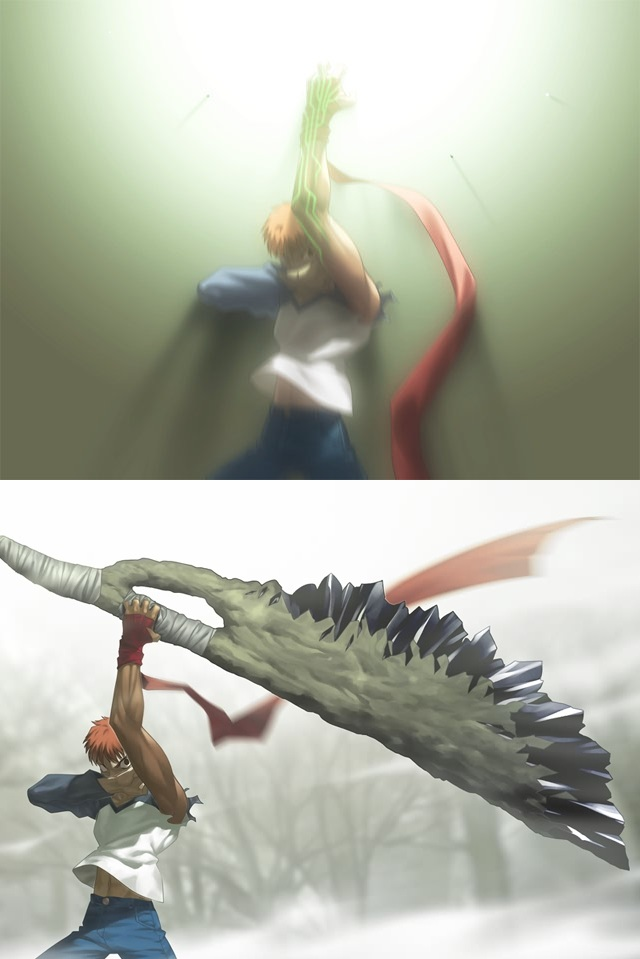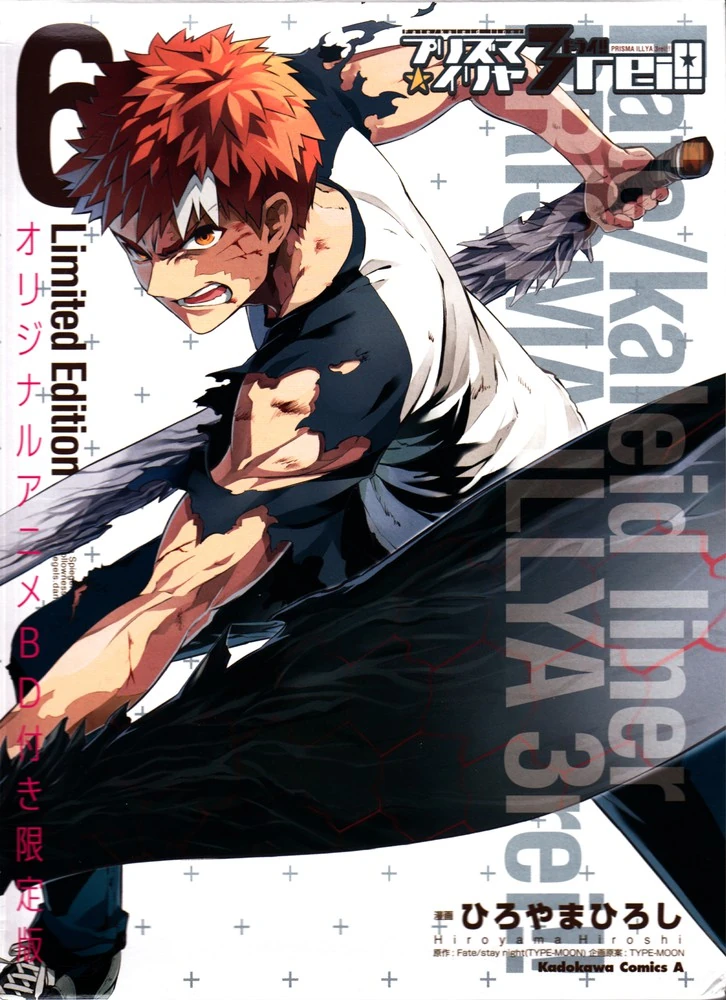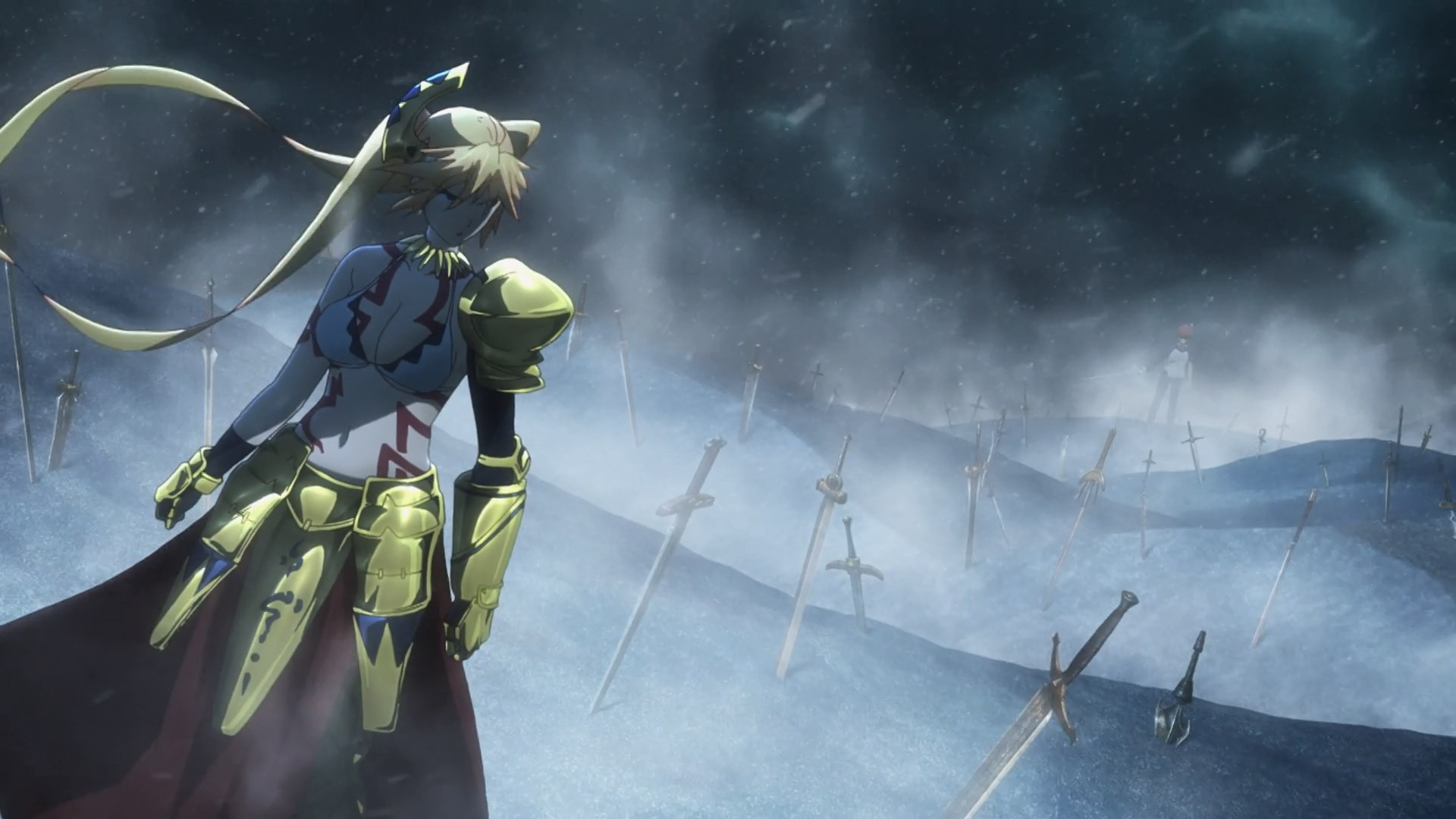 |
| https://upload.wikimedia.org/wikipedia/en/3/36/UnlimitedBladeWorksDVD.jpg |
[Remember, this is just an opinion and not an objective fact. Feel free to disagree and be civil about it.]
Some will defend it due to the hype train or are able to overlook the problems while others will wish to burn it on a stake. In my case, all I felt was disappointment as some of the episodes are well-done to the extent allowed by the anime's narrative but the rest did not work well which I can list below. There was a gem lying here that could have been polished to match Fate/Zero but sadly it did not work in my opinion. The second half especially was a disappointment for me as a viewer with a decent amount of knowledge on the VN. Rather than provide my usual overview of what makes or breaks a piece of work, I will state things that could have have been done to improve the adaptation as a whole. I will not provide a review due to my own biased dislike of this series (not that I completely hated it, I just didn't like it as much as I hoped I could seeing as I was on the hype train that I fell out of due to a particular episode).
1) Portrayal of Shirou's Character
 |
| http://i3.kym-cdn.com/photos/images/original/000/909/220/020.jpg |
As I have stated before in a previous post, Shirou Emiya is a peculiar character that has depth and complexity while being someone a normal person could not truly relate to. This adaptation choose to portray him as the average individual with a unique gift who is caught up in a situation that is FUBAR and has difficulty in keeping up. The problem is that he is portrayed as a typical shounen protagonist without the depth portrayed through monologues (not that I want every single monologue in the anime, that would be awful), complete with power-ups and the block-headed personality (though the VN Shirou externally has that personality) to go along with it. In the VN, the monologues show that behind that seemingly block-headed individual, there is an intelligent and competent individual who, while lacking the experience of a seasoned fighter, is capable of holding his own in a fight within reason while being a broken individual that lives to exist.
 |
| http://i1.kym-cdn.com/photos/images/original/000/676/265/7ff.jpg |
Sadly, Ufo had not attempted to compensate for this lack of monologues to show Shirou as a unique protagonist and in action sequences, Shirou winds up acting more like a shounen protagonist who receives power-ups that makes him seem like Superman. Perhaps a small number of monologues and conversations with other characters could have given this some form of fleshing out, such as Kiritsugu's own monologues in Fate/Zero that showcased how his thought process functioned. If more of these were done in the first half of the series, the character arc's climax and resolution would have greater impact in the second half and we are left with an understanding that Shirou is an empty and distorted individual (see my post on Shirou Emiya) rather than a victim of survivor's guilt. As it stands, Shirou's character arc felt like a footnote in the series and that the series is actually about the Holy Grail War which is the opposite, in my opinion, of what Fate Stay Night is (the VN felt more like Shirou's story and the Holy Grail War was the site that allow for his character arc to commence (the arc referring to his evaluation of his ideals)). In addition, the sudden power-ups (that are hand-waved as the result of projecting (replicating) legendary weapons that grants him the skills of the original wielders) do not add value to him and merely make him seem like a protagonist with plot armor. What could have been done to avoid this is to make his fighting more realistic without acrobatic dodges and giant leaps into the air; merely showing that he is able to withstand and hold out against strong opponents while remaining within the realms of believable feats through the presence of human weakness in him (though when the time is right, the anime should show that his skills do exceed a normal human's skills and (remember the memory link) mirror that of his future counterpart).
In a nutshell, greater attempt should have been made to portray Shirou as an intelligent and competent protagonist rather than a run-of-the-mill protagonist with a minor issue that is to be resolved before the story can proceed. It should make viewers understand that Shirou's character arc is a main part of the story rather than some footnote in a grand story. I am aware that Shirou's character in a visual scope would not be well-captured in a medium that shows the characters from a third person perspective since it prevents the viewer from seeing Shirou's thoughts and depth, I just think that brief monologues at moderately distant intervals would have shown that better.
2) Adding original sequences
 |
| http://geeksdreamgirl.com/wp-content/uploads/2013/02/filler-arcs.jpg |
I know that when it comes to adapting works from one medium to another, the addition of original sequences or scenes can be a cardinal sin that comes with a sentence of complete condemnation but for a Fate Stay Night adaptation, this should have been done, at least in my opinion. While I do like it when an adaptation is almost completely faithful to the original works (Fullmetal Alchemist: Brotherhood comes to mind), I understand the need for alterations and additions due to the unrealistic nature of certain sequences, irreconcilable differences as a result of technological restrictions, incompatibility of narrative and the method of delivering exposition. Certain things such as Shirou's ability to project felt like random power-ups with no build-up while certain info-dumps and exposition that the VN had were left unsaid or brought in for a quick glimpse before being tossed out a window. This was a flaw of the original VN itself which I have acknowledged for a long time; it is filled with excessive info-dumps and exposition that clog up the narrative that is good for world-building and establishing setting but makes it extremely difficult to insert into an adaptation while clogging up the pacing with characters stopping to explain. Having additional moments such as a scene that shows Shirou practicing Projection to test his magic capabilities after a failed Reinforcement and the resulting painful consequences of a successful Projection would show that Shirou can use this particular magic and that he is reluctant to do so as a result of the strain it inflicts on him. In addition, having original moments could allow for stronger portrayal of characters in this show, such as Ilya who is only given a single episode to make us feel sympathy for her before killing her off in that same episode. Viewers of Fate/Zero and/or VN readers (along with Fate/Kaleid viewers) would probably feel a greater impact of her death than a viewer who watches only Fuh Stuh Nut (I say probably, I could be wrong).
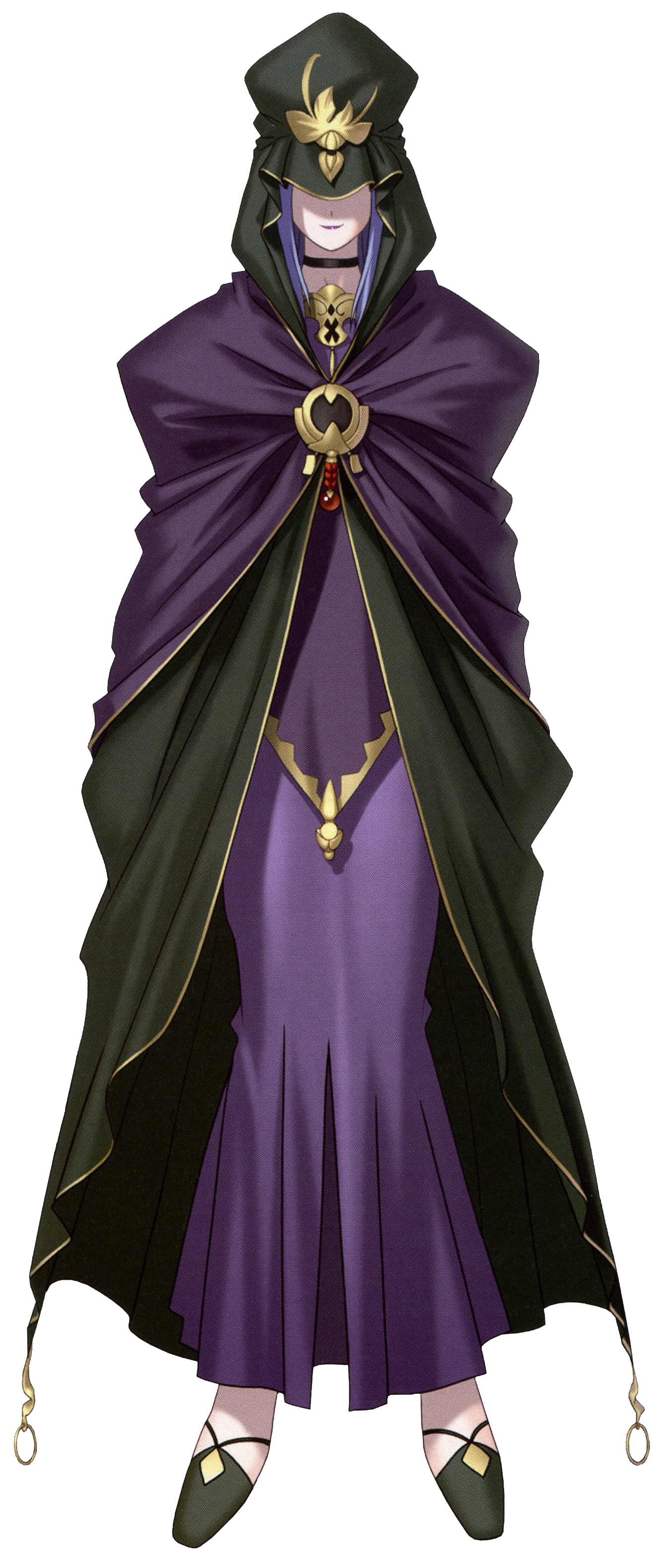 |
| http://vignette4.wikia.nocookie.net/typemoon/images/e/e6/Caster.png/revision/latest?cb=20141014190704 |
Caster's back-story should be noted as an actual original sequence that was made but was not well-implemented with Caster being shown as a typical Jerk with a Heart of Gold that has to deal with a lousy master that is prejudiced against here. This is a rather shallow portrayal of Caster who is consistently shown as a pragmatic villain in the show and in terms of narrative, all it seems to do is pad out the episode without adding greater depth to Caster. I guess what they could have done is to only have Caster deciding to do the right thing only because she sympathized with the plight of the kidnapped children that suffer a similar plight to herself (being exploited by an individual who took them away from their homes and would be cast aside in the end) rather than immediately showing that she does not wish for them to suffer for a meaningless ritual. I guess that could have been implied but in the actual sequence, it felt like a footnote that appears and disappears rather than a sequence that adds a lot of depth. Here, it felt minimal at the very least. As a whole, I wish more time was spent adding more scenes that added depth to the story so that the adaptation could keep more of the VN's spirit in the works while improving on moments that have been left out.
 |
| http://static.tvtropes.org/pmwiki/pub/images/BLAM_ferngully.jpg |
Fate Stay Night was initially an eroge VN with a well-crafted setting, this must be acknowledged. As a result, the romances between the hero and heroine of the routes are present, whether one likes it or not. As mentioned above, I do advocate adding original moments only to improve the quality of the work. On the opposite coin, I also advocate the cutting or altering of unneeded moments from the original work. Fate Stay Night is about the Holy Grail War but one could be excused for assuming that it is a slice of life story from the first half alone. While it is done to establish characters (save that of Shirou Emiya), it drags on and prevents the explanation of plot devices along with elements of the setting due to a need to show that Shirou is a master chef who serves the women around him like a house-husband (please don't read deeper into that joking remark, I certainly won't). As a result, the tension and atmosphere that pervades a war is lacking here with the threats being too distant in terms of location in the plot to make one feel tense. Only the second half presents actual tension where the threat of other participants of the war are actually present. Fate/Zero's advantage here is the fact that the tension remained high with the War ever-present as a looming threat the characters would be forced to confront. Here, it doesn't feel like a war but a tournament that the characters are summoned to through the plot's alarm clock. Removing some of the relationship establishing moments or at least, introduce shorter moments that have greater depth while not dragging on would help in maintaining the tension and mood of the War while preventing the series from dragging on. It may even provide the gaps for original scenes that provides exposition so that it does not seem as rushed as the second half's explanations (especially with the explanation of Berserker and Gilgamesh's backstory and traits that are done in a single sentence (especially the former)). I fully acknowledge that I do not have film-making experience so what I say can be invalid but what I do say here are things that I think could have been done to improve what we have here.
4) Maintaining the mood of the moment
As I stated before, edits that either add or remove scenes could maintain the tensions and mood of a war. In addition to that, the problem faced by this adaptation (especially in the second half) were the awkward jump cuts made in major moments in the story. Moments like UBW, the Answer, Saber vs Assassin and the Final Battle were victims of these jump cuts whereby the flow is broken by jumping to a scene that may not even correlate to the moment and ruins whatever intensity said moments had. Perhaps these scenes should have been shown to its fullest before placing full focus onto the main moments though I do not recall if it was like that in the VN. If it was, then ufotable could have fixed this problem (even if it led to VN purists besieging the offices) and if it was not, the people behind the adaptation have made poor design choices. I guess the main bulk of this point is to avoid making awkward jump-cuts that ruin the flow of the moment even if it goes against the VN.
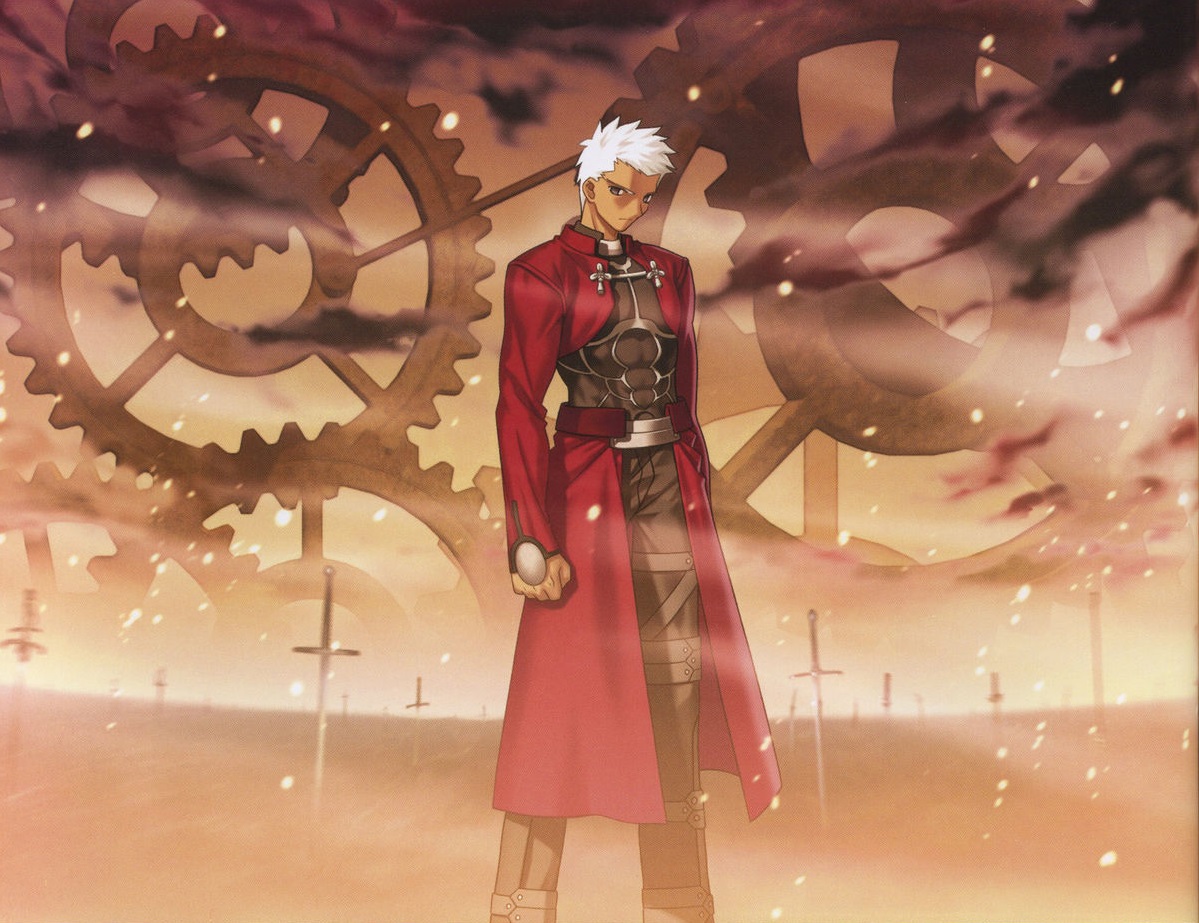 |
| http://vignette1.wikia.nocookie.net/typemoon/images/1/1d/Archerubw.jpg/revision/latest?cb=20150517165134 |
When I was following this series, I was hyped for the unveiling of the titular ability of Archer. It was an impressive moment in the VN though short as it showed the true abilities of Archer and explains how Archer does battle. It was ufotable's portrayal of this moment that soured my opinion of Fuh Stuh Nut due to how underwhelming this moment felt. This occurred at the moment Shirou attempts to counter the small barrage Archer launches at him which is odd as each blade seems to come at him one at a time. Due to the lack of build-up of Shirou's capabilities (see portrayal of Shirou for some details), it would appear like an ass-pull to anime-only viewers for Shirou to be able to replicate the small barrage for the purpose of countering the barrage as hinted (implied) by the VN (or that's how I saw it when I read that part in the VN). So, Shirou instead becomes Fate/Zero's Berserker in the sense that he replicates the blade (one at a time barrage) and destroys it with the exact same blade, almost like how Berserker (Fate/Zero's) uses one Noble Phantasm to counter another. After doing this for a couple of blades, Shirou shouts and the scenes jumps straight to the aftermath. I remember banging my head on my poor desk at this scene. This was a prime example of a jump-cut that ruined the moment, where tensions were high and the moment felt intense. A clash was imminent that would be interrupted by a crumbling alternate reality that was crumbling at a rapid pace. The cut however ruined the moment for me. All that build-up and little pay off made me excited and eventually, disappointed. I guess what could have been done was to show Shirou slowly beginning to grasp remote Projections and countering the small barrage with his own weaker barrage that reduces the momentum of the former. However, due to their portrayal of Shirou, this may not work as well. As a whole, ufotable should have portrayed Shirou as a competent protagonist in the first place so that this would not seem like a complete ass-pull (like his first Projection in this adaptation).
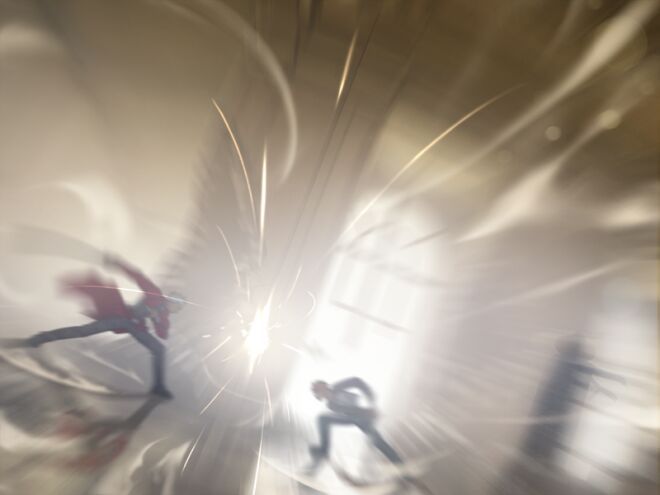 |
| http://pm1.narvii.com/5847/23941edb870618d8552c115e433eef0ca65b0305_hq.jpg |
 |
| http://memesvault.com/wp-content/uploads/Spiderman-Derp-Meme-4.jpg |
Sadly, the second half came along, waking me from the good dream I had as a result of that first half and making me think that Miura (the director of this poor adaptation) is a lot like emo Pete as pictured above. The frequent jump-cuts and a lack of build up from Shirou due to his portrayal weakens the gravity of the entire Answer but what makes episode 21 feel weaker is several questionable decisions in making the scene. Ufo's Shirou being acrobatic and spry during the second half of the fight runs in contrast with the desperation and sheer determination that the VN Shirou had, whereby he was driven to overcome his doubts, made by his future self, through sheer determination alone and was barely alive for that fight. The desperation and subsequent lack of skill he has during that second half within the VN shows how driven he is by his re-established ideals and how close to death he is. He was on the verge of defeat but kept clashing blades with Archer, making the moment feel more powerful as this hopeless battle rages on. What adds to that is Archer's own desire to continue clashing against this Shirou as the VN is able to indicate that he feels the need to challenge Shirou despite being aware of Shirou's state at that moment and that he could finish the fight instantly. While Ufotable was able to pick up on the latter, there was a lack of clashes between the two and for the most part, Shirou was still able to challenge Archer with acrobatic flourishes (the transfer of skills excuse). For me at least, it weakened the moment immensely and removed the intensity of the moment as the clash of ideals with one side being solely driven to upholding it's validity even in his dying state was removed from the equation. It was still a one-sided battle (at least compared to Deen) but the intensity and sense of clash was not present for me. I only saw fancy moves and a lack of blades clashing together in combat. It didn't help that the moment where Shirou begins his final charge, he begins to deflect Archer's one-at-a-time barrage of swords which made it seem that Shirou was becoming too powerful for Archer to handle. While it can be argued that it showed that Archer was beginning to weaken in terms of his current resolve as his old ideals resurfaced in him, it lacked the intensity that a clashing of swords had. I think they should have had Shirou actually clashing blades with Archer in a near-death state (or at least, exhaustion seeing as how Avalon healed all his wounds in the anime) where no skill was being used in the fight, only sheer desperation and determination behind each clumsy swing that Archer felt obliged to clash against despite his instincts telling him otherwise (a short monologue like Kiritsugu's monologues would help here). One thing I will state is that the individual in charge of music or soundtrack for Fuh Stuh Nut should be suspended or given a harsh lecture by his mother-in-law for questionable decisions in that department with a full vocal song inserted in episode 20 seemingly to tell us to feel something (not that the song wasn't bad but it felt out of place in a moment of contemplation and realization, perhaps an instrumental piece would work here) while barely playing the EMIYA theme until that final charge (which already lacked intensity).
 |
| https://s-media-cache-ak0.pinimg.com/564x/52/b3/7f/52b37f7d586ba589b97c192b39049959.jpg and https://www.pinterest.com/pin/360850988865277290/ |
Shirou's resolution here isn't as well done though (from what I recall from my readings of the VN) as this moment should have been the moment where Shirou has a firm grasp of his ideals. Yet, in the last episode, Shirou seems to have lingering doubts about his ideals and is stated to be able to end up following Archer's path. From what I have read, it would appear that as a result of this route, Shirou (while still willing to become a Hero of Justice) understands his limits and would never go the distance if it had the risk of completely destroying him while having Rin with him to ensure that he will never fall that far (I imagine that's why the ED sequence shows his UBW as a world with life in it). Here, it seems that he will try to go the distance with a smaller understanding of his limits (though it can be argued that his doubts here are merely doubts on how to pursue his goals without becoming Archer, so if you prefer that interpretation, ignore my comment on Shirou's resolution). Perhaps a better portrayal of that moment or a small self-monologue could clarify what Shirou wants here but as a result, this Shirou appears to have learnt little from the Answer sequence aside from knowing what he wants. As a whole, the Answer lacked intensity and deviated from the VN's portrayal of the moment while having questionable (though not entirely awful) decisions in terms of soundtrack and resolution. I guess what I wanted was what episode 20 did well and the presence of an actual clash where 2 individuals with differing ideals battling to the death and the protagonist in the battle winning this impossible battle due to his unwavering faith in the ideal's value. This sequence should have been the main highlight of the anime instead of the footnote that some could mistake it to be. Also, make the jump-cuts minimal to ensure that the mood can be maintained (even if it means deviating from the VN)
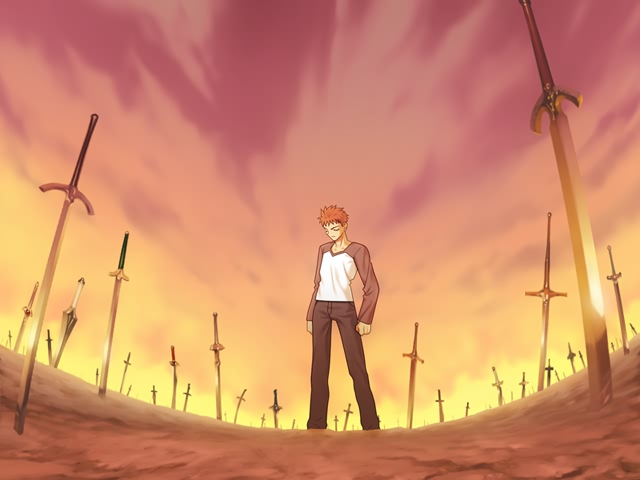 |
| http://vignette1.wikia.nocookie.net/typemoon/images/4/44/Shiroubw.jpg/revision/latest?cb=20100903223040 |
Before I proceed, I would acknowledge that this final battle was a lot better than Deen's version with Shirou actually using the UBW properly rather than having it act like a place that amps up his combat skills. With that said, it isn't much of an improvement. We have Gil constantly making long-winded explanations of his motives to pad out the episode and jump-cuts that, while aren't as awkward as the jump-cuts from the Answer, did weaken the flow and intensity of the moment. While there are many points I can nitpick against, I will mainly focus on the two main points I stated above, starting with the latter.
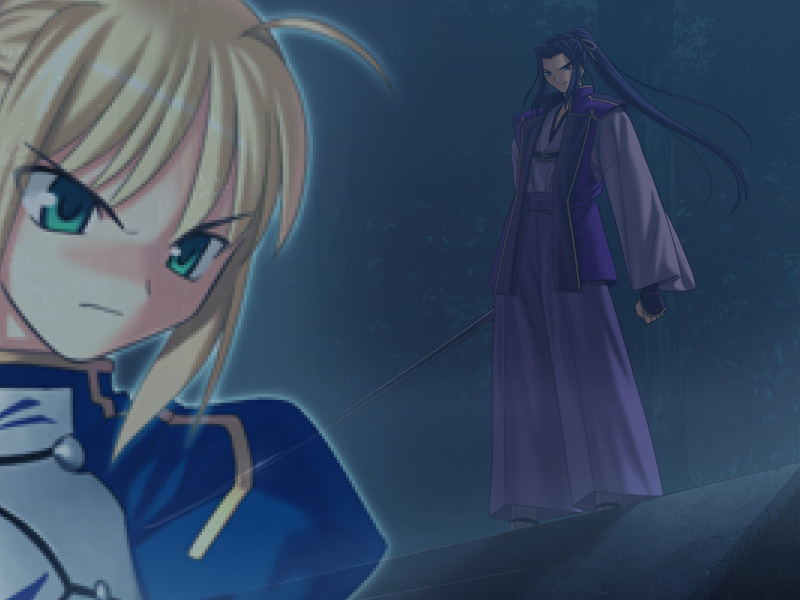 |
| http://lparchive.org/Fatestay-night/Update%20151/13-UBW06-09-23.jpg |
The battle between Saber and Assassin was a chance for ufotable to show off amazing visuals as two master swordsmen of differing styles clash, with the latter being far more superior than the former in terms of skill alone. It was a highlight moment in the VN route and I still have a degree of fondness for that sequence. Here, it boils down to a clash followed by dialogue before clash and talk again with each dialogue taking longer times to finish (an accurate adaptation from VN to anime but did not fill in the gap between the lack of dialogue). As a result, there is barely a fight present and more of a presentation of Assassin's dilemma of being a fictional hero of little significance. I guess it was done to show more of Saber's dilemma as it is being resolved but I did not see it in that sequence. Instead, all I saw was a Powerpoint presentation being made by the two with the occasional sword clash to remind us that they are fighting (which was ironically worse than the opening sequence's fight scene). In the end, Saber and Assassin make a final clash with Assassin using his Noble Phantasm against Saber's boosted sword swing. Saber wins and Assassin is left to monologue before fading away. What was missing was the brief explanation on why Saber won the fight which is easily missed by the unaware viewer of the show. In the VN, a line is provided that stated that Saber's victory was a result of Assassin clashing his katana against her sword, damaging it along with bending it. This was a result of his desire to directly challenge a hero of immense fame. As a result, his own Noble Phantasm was inaccurate in precision due to that bend, allowing Saber an opportunity to evade the Noble Phantasm and defeating him. In the anime however, this is not explicitly stated and the damage shown on Assassin's sword could be misconstrued as Saber being strong enough to damage his sword which goes against the entire concept of the fight. It made Assassin look like the less skilled swordsman which is far from the truth. So, I guess a brief line should have been placed here to establish that Assassin's mistake had costed him the fight rather than Saber's skill being superior to Assassin and that the actual fight should have had more combat sequences of Assassin fending off Saber with minimal contact to ensure less damage until the pivotal clash. Ufotable's inability to properly portray this fight was what finally led me to write off this adaptation as a poor one rather than an average one.
 |
| http://i384.photobucket.com/albums/oo285/Yogil15/Anime/shirou.jpg |
Back to the final battle, Shirou does not actually attempt to close the distance between himself and Gil when they do battle in the UBW though ufo did show that Shirou does use UBW's faster production rate to counter Gil's rain of swords from GoB (Gate of Babylon). In the VN, Shirou quickly closes the gap between Gil and himself to force Gil to face him in physical combat where Gil is slightly weaker in which the anime forgot about in order to make the sequence seem cooler. Gil in the anime barely appears to be challenged by Shirou in the fight with his growing anger appearing as a result of irritation rather than the confusion and loss of control over the situation in the VN. Once again in the VN, Shirou knows that Gil (being a wielder, rather than a master of his weapons) is weaker in close quarters and would be forced to clash against Shirou with a random Noble Phantasm he pulls from the GoB. Without being a master, he would be unable to use the retrieved weapon at its fullest potential and would simply wield it against Shirou in his flustered state. Shirou, being in the UBW, would be able to replicate the blade at a faster speed and destroy Gil's selected weapon immediately. As a result, Shirou would be able to summon weapons faster than Gil can retrieve, placing Gil at a disadvantage while ensuring that Gil does not have composure to think properly. By the time Gil retrieves Ea to be used properly, he does so out of desperation and with great hesitance as he is forced to use his personal sword against an unworthy foe (something Ufo was able to convey to their credit with Gil's clear hesitation shown in the fight). In the anime however, Shirou doesn't actually attempt to close the gap between himself and Gil; he merely irritates Gil by staying alive and lobbing shots at Gil with only one real instance of closing in for close quarter combat. I guess it was done to pander to Gil fans from Fate/Zero but this was something that could have been avoided by portraying Shirou as a character similar to the VN. Here, he wins by using the abilities granted by the replicated Noble Phantasms and uses Rho Aias like an aerial surfboard (not that I'm complaining about the latter, it's a creative application at least). As a result, the fight felt weaker for me and not the spectacle I could envision from the wall of text of the VN where strategy and understanding of the opponent along with exploitation of personal advantages won the battle rather than the opponent being frustrated into defeat and what looks like a sudden power-up by a protagonist. For this sequence, what I think should have been done was to adapt most of the actual VN's sequence but implement complications to it like Shirou being forced to adapt his strategy as Gil catches on (due to the 'brilliance; he is supposed to have according to Fate/Zero fanboys) and Gil being unable to even equip his armour due to the relentless barrage of Shirou's melee assault.
Ufo should have portrayed Shirou better while making the occasional changes for the adaptation, maintaining the mood and tension throughout the series and making different decisions for the events stated above. Despite my own long fanboy rants here, I do not consider this adaptation to be awful but merely disappointing. Ufotable has tried to adapt the route but due to the VN biggest flaw (over-reliance on each route to make a cohesive story in each route), their faithful adaptation did not flow very well for an anime-only watcher. I could fill in gaps myself since I have read the VN and done some reading up of my own but I imagine that viewers can only maintain interest due to the graphical spectacle of Ufotable. As a VN reader, the changes here did not make sense at times and often, the Rule of Cool is implemented without following the VN's narrative and structure (with frequent uses of acrobatic flourishes in said anime). While it is nice that Fate got another adaptation even though Deen already made two adaptations, the adaptation we got here was wasted potential as the inability to adapt key moments properly into anime format weakened the show for me which could have been avoided by making better decisions (or keeping a steady budget).
I could recommend this show to fellow anime viewers but only after telling them to go in with low expectations and after watching the whole thing, recommending them to get the actual VN to see how the actual sequences went down. The graphics and animation look good but without a strong and cohesive narrative with flow to hold the spectacle up, it simply would not hold up without prior knowledge of the actual VN it was adapted from.
P.S: I firmly believe that an anime that attempts to completely adapt a VN, complete with all the monologues included, would be more terrible than the theoretical Tsukihime anime (not that such an anime even exists at all). I will not actually discuss the mana transfer sequence since there is no actual way to adapt that sequence without it coming across as ridiculously hammy. Also, this is my opinion on this anime so if the reader wishes to do properly debate with me, remember that both opinions of myself and the reader are valid as they are our own.
EDIT: Writing from 2021, my opinion of this anime has softened. UfoUBW is not an objectively poor adaptation and is probably one of the best ways a newcomer to the Fate franchise can be introduced to it (aside from Fate/Zero or even some dipping into Deen/Stay Night (albeit reluctantly). While I do disagree with some of the choices used for the adaptation, it would be wrong for me to say it was terrible as legitimately terrible anime especially for a newcomer. I would not rewatch UfoUBW but I would not re-direct people away from it either.
